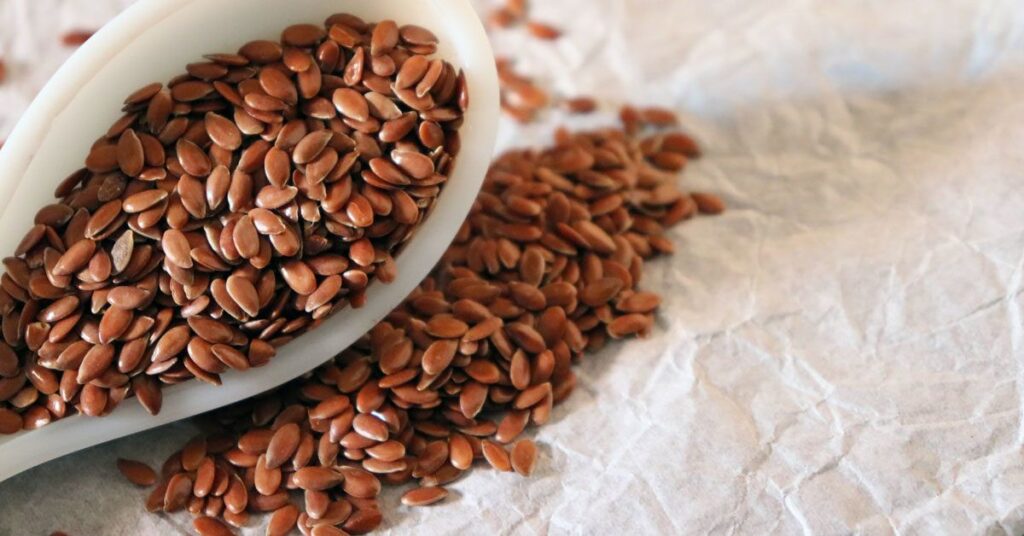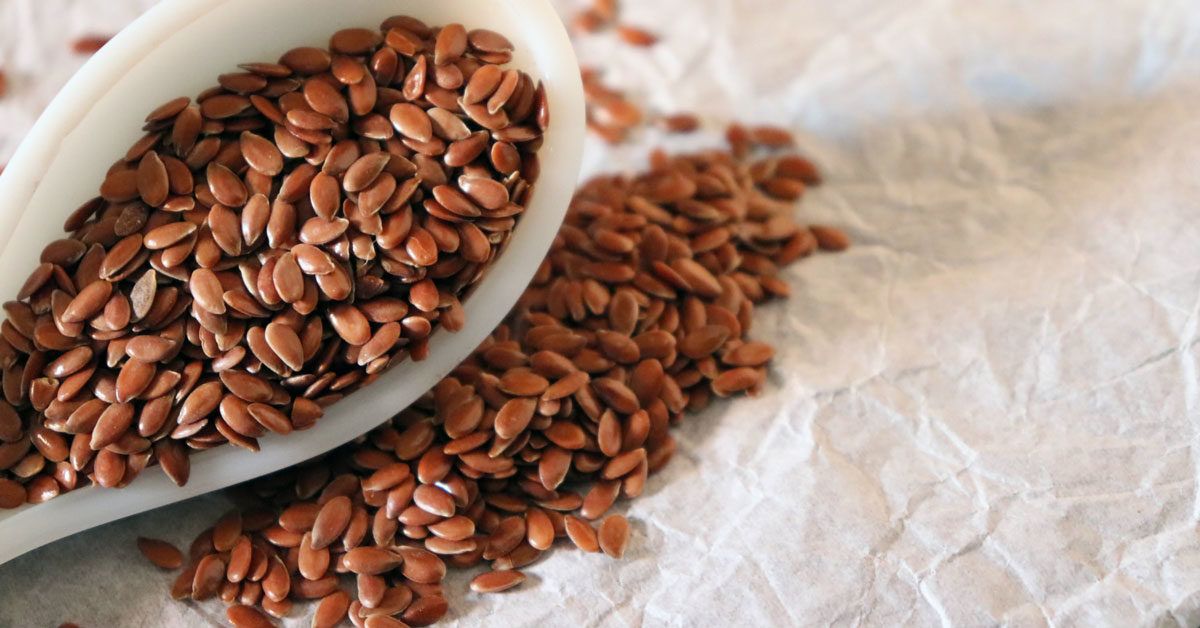
Flax and Estrogen: Unraveling the Connection and Its Implications
In recent years, the relationship between diet and hormonal health has garnered significant attention. Among the various dietary components investigated, flaxseed has emerged as a subject of considerable interest, particularly concerning its potential effects on estrogen levels. This article delves into the intricate connection between flax and estrogen, exploring the scientific evidence, potential benefits, and considerations for individuals seeking to understand this relationship better. We will examine how flax, a common seed, interacts with the body’s hormonal system, specifically focusing on estrogen. Whether you’re a health enthusiast, a woman navigating hormonal changes, or simply curious about the impact of food on your body, this comprehensive guide will provide you with valuable insights.
Understanding Flaxseed: A Nutritional Powerhouse
Flaxseed, derived from the flax plant (Linum usitatissimum), is a nutritional powerhouse packed with various beneficial compounds. It is a rich source of:
- Omega-3 Fatty Acids: Primarily alpha-linolenic acid (ALA), an essential fatty acid known for its heart-health benefits.
- Lignans: Phytoestrogens with antioxidant and potential hormone-modulating properties.
- Fiber: Both soluble and insoluble fiber, contributing to digestive health and satiety.
These components collectively contribute to the potential health benefits associated with flaxseed consumption. [See also: Benefits of Omega-3 Fatty Acids]
Estrogen: A Key Hormone in the Body
Estrogen is a primary female sex hormone, though it is also present in smaller amounts in males. It plays a crucial role in various physiological processes, including:
- Reproductive health and menstrual cycles.
- Bone density and cardiovascular health.
- Cognitive function and mood regulation.
Estrogen levels fluctuate naturally throughout a woman’s life, particularly during puberty, pregnancy, and menopause. Maintaining a healthy balance of estrogen is essential for overall well-being. Imbalances, whether too high or too low, can lead to various health issues. The effects of flax on estrogen levels are therefore of great interest.
The Role of Lignans in Estrogen Modulation
Lignans, a type of phytoestrogen found abundantly in flaxseed, are at the heart of the flax and estrogen connection. Phytoestrogens are plant-derived compounds that can mimic or modulate the effects of estrogen in the body. Lignans are converted by gut bacteria into enterolignans, such as enterodiol and enterolactone, which can bind to estrogen receptors.
The impact of lignans on estrogen activity is complex and can be influenced by several factors, including:
- Individual gut microbiome: The composition of gut bacteria plays a crucial role in the conversion of lignans into enterolignans.
- Existing estrogen levels: Lignans may exhibit either estrogenic or anti-estrogenic effects depending on the body’s current estrogen status.
- Dosage and duration of flaxseed consumption: The amount and duration of flaxseed intake can influence the magnitude of the effects.
Because of these factors, the effect of flax on estrogen is not always predictable. Some studies suggest that lignans can help alleviate menopausal symptoms by providing a mild estrogenic effect when estrogen levels are low. Conversely, they may also compete with the body’s own estrogen, potentially reducing the risk of estrogen-dependent cancers in women with high estrogen levels. [See also: Understanding Phytoestrogens]
Research Evidence: Flaxseed and Estrogen
Numerous studies have investigated the effects of flaxseed consumption on estrogen levels and related health outcomes. Here’s an overview of some key findings:
Studies on Menopausal Symptoms
Several studies have explored the potential of flaxseed to alleviate menopausal symptoms, such as hot flashes, night sweats, and vaginal dryness. Some studies have shown that flaxseed supplementation can reduce the frequency and severity of hot flashes in menopausal women. The lignans in flax may provide a gentle estrogen-like effect, helping to ease these symptoms. However, results have been mixed, and more research is needed to confirm these findings.
Studies on Breast Cancer Risk
The potential anti-cancer properties of flaxseed, particularly in relation to breast cancer, have also been investigated. Some studies suggest that lignans may help reduce the risk of breast cancer by interfering with estrogen signaling and inhibiting the growth of cancer cells. However, the evidence is not conclusive, and more research is needed to determine the optimal dosage and duration of flaxseed consumption for cancer prevention. It’s important to note that while some research is promising, flax is not a substitute for conventional cancer treatments or preventative measures. The relationship between flax and estrogen in cancer prevention is still being studied.
Studies on Bone Health
Estrogen plays a vital role in maintaining bone density. As estrogen levels decline during menopause, women are at increased risk of osteoporosis. Some studies have explored the potential of flaxseed to support bone health in postmenopausal women. While the evidence is limited, some studies suggest that flaxseed consumption may help improve bone density and reduce the risk of fractures. [See also: Natural Ways to Boost Bone Density]
Incorporating Flaxseed into Your Diet
If you’re interested in incorporating flaxseed into your diet, here are some practical tips:
- Choose ground flaxseed: Ground flaxseed is easier to digest and allows for better absorption of nutrients. You can buy pre-ground flaxseed or grind whole flaxseeds using a coffee grinder or blender.
- Start slowly: Begin with a small amount (e.g., 1-2 tablespoons per day) and gradually increase your intake as tolerated.
- Add it to various foods: Flaxseed can be added to smoothies, yogurt, oatmeal, baked goods, salads, and other dishes.
- Store it properly: Store ground flaxseed in an airtight container in the refrigerator to prevent oxidation and maintain its freshness.
Potential Risks and Considerations
While flaxseed is generally considered safe for most people, there are some potential risks and considerations to keep in mind:
- Digestive issues: Consuming large amounts of flaxseed can cause digestive issues, such as bloating, gas, and diarrhea, particularly if you’re not used to a high-fiber diet.
- Drug interactions: Flaxseed may interact with certain medications, such as blood thinners and diabetes medications. If you’re taking any medications, consult with your healthcare provider before adding flaxseed to your diet.
- Pregnancy and breastfeeding: While some studies suggest that flaxseed is safe during pregnancy and breastfeeding, more research is needed. It’s always best to consult with your healthcare provider before consuming flaxseed during these periods.
- Hormone-sensitive conditions: Individuals with hormone-sensitive conditions, such as breast cancer, uterine cancer, or endometriosis, should consult with their healthcare provider before consuming flaxseed, as the lignans may have estrogenic effects. The impact of flax on estrogen levels in these conditions is still under investigation.
The Bottom Line: Flax, Estrogen, and Your Health
The relationship between flax and estrogen is complex and multifaceted. Flaxseed, with its rich content of lignans, omega-3 fatty acids, and fiber, offers potential health benefits, particularly in relation to hormonal health. While some studies suggest that flaxseed may help alleviate menopausal symptoms, reduce breast cancer risk, and support bone health, more research is needed to confirm these findings. The effects of flax on estrogen are influenced by individual factors, such as gut microbiome composition and existing hormone levels.
If you’re considering incorporating flaxseed into your diet, it’s essential to start slowly, choose ground flaxseed, and be mindful of potential risks and considerations. Consult with your healthcare provider, especially if you have any underlying health conditions or are taking medications. By understanding the intricate connection between flax and estrogen, you can make informed decisions about your diet and overall health. The interaction between flax and estrogen is a dynamic field of study, and ongoing research continues to shed light on the potential benefits and limitations of flaxseed consumption.

